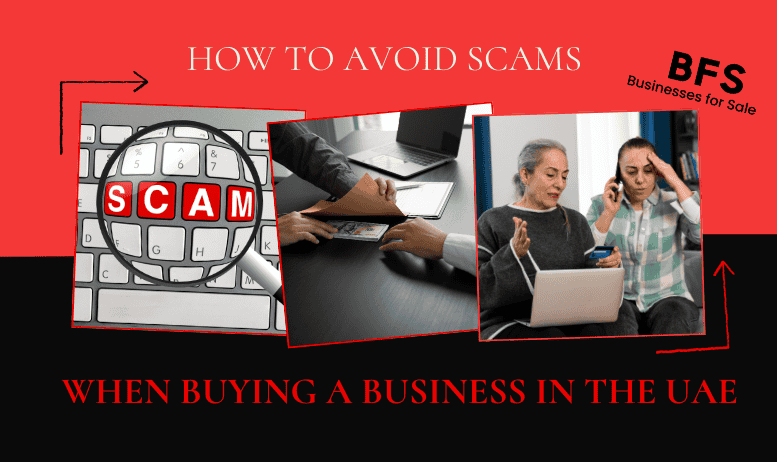
You want to start your business in UAE but don't have investment. Don't worry, we are going to kill your worry about how to find investors for small business in UAE. Not everybody is worthy of starting a business on their own.
There are many benefits to acquire an established businesses in Dubai, but the cost depends on the type of business, where it will be located.
Is Dubai a good choice for finding investors for your business?
United Arab Emirates is a great place for small and large businesses to operate in a variety of industries. There are many platforms where you can sell your business online. The Emirates has three types of business jurisdictions: Mainland, Free Zone, and Offshore. Dubai is a popular choice for investors because of its
- Location
- Low investment requirements
- Business-friendly policies
How to find Investors in Dubai - 10 Easy Methods
1. Equity crowdfunding:
Equity crowdfunding is a burgeoning trend in the UAE, providing small businesses with a unique opportunity to raise capital. This method of funding allows small businesses to attract investments from both individuals and institutional investors through online platforms.
These platforms have played a pivotal role in fostering the growth of small businesses in Dubai, offering potential for high returns and portfolio diversification. However, like any investment, equity crowdfunding carries risks such as potential fraud, lack of liquidity, and limited information on listed companies.
Therefore, investors are advised to exercise due diligence when choosing a platform that aligns with their financial goals. Despite these risks, investing in small businesses can yield significant financial returns and contribute to the local economy’s growth and development.
2. Friends & Family:-
Another way of finding investors for business is your friends and family. Securing funding from friends or family members for your start-up can be a great option because they already have faith in you and are eager to help you succeed. However, it's important to keep your business and personal relationships separate by making sure to get everything in writing and clearly explaining the risks involved in a new start-up.
It is crucial that your friends and family understand that they could potentially lose their investment, so be sure to fully communicate this fact. Ultimately, it's not worth jeopardizing your personal relationships over business investments.
3. Personal Networks:
The first place to look for investors is within your personal network. This includes family, friends, and acquaintances that believe in your vision and are willing to invest in your business. This method of funding is often overlooked, but it can be a great way to kickstart your venture.
Check out these low cost business ideas.
4. Local Financial Institutions:
Banks and credit unions are potential sources of funding for your business, offering various types of business loans. However, securing a loan from these institutions typically requires a solid business plan and possibly collateral. A good credit score and a proven track record of financial management are also important factors for loan approval.
5. Community Investment
Local business communities are indeed a treasure trove of potential investors. These communities are often made up of experienced business owners, entrepreneurs, and professionals who have a vested interest in seeing local businesses thrive. They understand the local market, the challenges unique to the area, and the potential for growth.
Attending local business events is a great way to tap into this resource. These events, which can range from networking mixers to industry-specific seminars, provide an opportunity to meet potential investors face-to-face. It’s a chance to pitch your business idea directly to them, answer their questions, and build a relationship.
6. Angel Investors:
Angel investors are individuals with surplus cash and a keen interest in investing in startups. They also provide mentoring or advice alongside capital. Angel investors have helped to start up many prominent companies, including Google and Yahoo.
These investors typically provide more favorable terms compared to other lenders, as they are investing in the entrepreneur starting the business rather than the viability of the business.
Angel investors are focused on helping startups take their first steps, rather than the possible profit they may get from the business. Essentially, angel investors are the opposite of venture capitalists.
7. Business Plan Competitions:-
A lot of universities, business schools, and organizations hold business plan competitions to help people get support for their business ideas. Taking part in these competitions can give you a chance to get funding and advice from experienced judges.
It's important to research and find the right competitions and create a good business plan to improve your chances of winning.
8. Crowdfunding Platforms:
Crowdfunding platforms are an excellent way to raise capital. You can create an online campaign and share it on social media to raise small amounts of money from a large number of people. This is a viable option for product-based businesses or creative projects.
To maximize your chances of success, create a compelling campaign that highlights your product or service, target market, and the impact your business can make.
9. Government Grants and Subsidies (Empowering Small Businesses):-
Governments worldwide offer a variety of programs to bolster small businesses, recognizing their crucial role in economic development and job creation.
These programs include grants, which are non-repayable funds tied to specific activities, and come with stringent compliance measures.
Low-interest loans are another form of support, offered at rates significantly lower than commercial lenders, easing the capital acquisition process for small businesses.
Additionally, governments provide tax incentives, including credits, deductions, and exemptions, which can substantially alleviate the tax burden on a small business.
These diverse forms of government support collectively serve as a lifeline, empowering small businesses to thrive and prosper.
10. Venture Capitalists:
Venture capitalists are professional groups that invest in companies with huge potential. They usually invest in a business against equity and exit when there is an IPO or an acquisition.
VCs provide expertise, mentorship, and acts as a litmus test of where the company is going, evaluating the business from the sustainability and scalability point of view.
Bringing it to close:
Securing investment for a small business is a critical yet achievable goal. It requires a well-planned business plan, showcasing the potential for growth and profitability in Dubai Market. Attending industry events, joining local business groups, and leveraging online platforms are sources where you can find investors for acquiring businesses for sale in Dubai.
Crowdfunding and angel investors are viable options, offering not just funds but also valuable industry insights. Government grants and loans, though competitive, are worth exploring for purchasing businesses in Dubai. Remember, investors seek businesses that demonstrate innovation, sustainability, and a strong market presence in Dubai's competitive landscape.
Therefore, continually improving your product/service, understanding your market, and maintaining a robust online presence can attract investment. Business patience and persistence, coupled with a sound strategy, can help secure the necessary funding to grow your small business.

.jpg)





.png)




Sharing Is Caring!